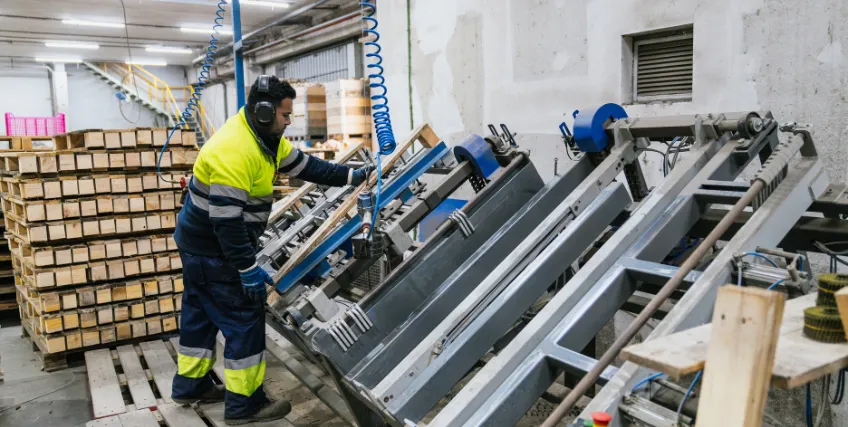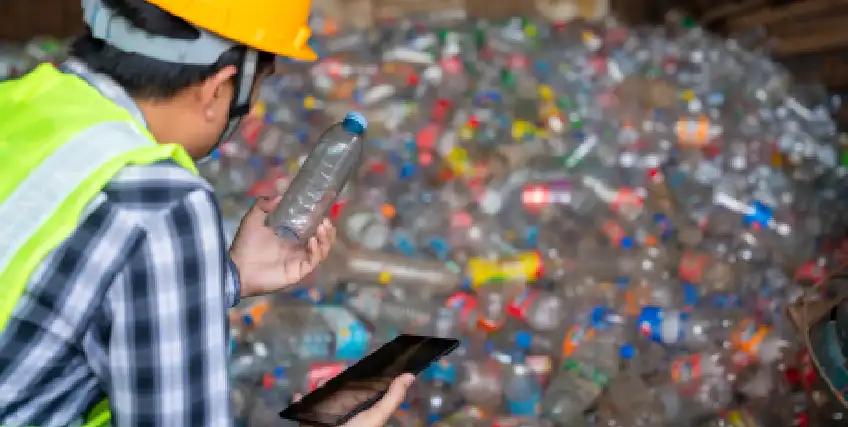Funding for Recycling Projects: Popular Loan and Grant Options for Green Businesses
Sep 04, 2025 | Last Updated on: Sep 08, 2025

As the world grapples with environmental challenges, the recycling industry stands at the forefront of sustainable innovation. Green businesses seeking to launch or expand recycling projects often encounter a daunting hurdle: financing.
Fortunately, various options exist that make funding for recycling projects accessible, scalable, and impactful.
This article delves into the landscape of grants, loans, and other financial instruments that can help eco-conscious entrepreneurs transform their green visions into profitable, planet-friendly ventures.
The Growing Demand for Recycling, and Why Funding is Essential
As the world generates more waste and regulatory scrutiny increases, the demand for effective recycling solutions has never been more critical. But building or expanding a recycling company involves significant capital investment.
Machine acquisitions, plant modernization, logistics, and staff additions all consume significant capital. For most entrepreneurs, it all starts with finding the appropriate sources of funding for recycling projects, government grants, bank loans, and emerging platforms for investment.
Grants for Starting a Recycling Business: Turning Green Ideas into Reality
Government and non-profit institutions are aware of the economic development and environmental conservation role of recycling and therefore provide diverse grant programs for this sector. Starting a recycling business is especially appealing with grants since they don't have to be repaid, making them a low-risk source of financial support for companies that can then invest in growth and innovation.
Federal and state recycling grants
At the federal level, the United States Environmental Protection Agency (EPA) takes the lead with initiatives such as the Solid Waste Infrastructure for Recycling Grant Program.
Under the Infrastructure Investment and Jobs Act, between 2022 and 2026, $275 million was distributed in funding for recycling projects across the country. The initiative targets enhancing recycling infrastructure, education, and developing strong local recycling infrastructure.
States supplement these federal initiatives with their own inducements. California's CalRecycle grants, for instance, assist businesses in paying for equipment, facility improvements, and new recycling technology. Michigan, in like manner, provides education-related grants to communities adopting new recycling initiatives. Localities also frequently pitch in, with eligibility requirements adapted to community and business structures.
Private and non-profit grants
Specialized foundations like the Glass Recycling Foundation concentrate on targeted material streams and might provide matching grants for projects adding new technologies or addressing historically hard-to-recycle materials.
Applying for recycling grants
Obtaining a grant involves intimate knowledge of the goals of the funder, an interesting project proposal, and evidence of measurable outcomes. Administrators seek conformance with sustainability goals, employment creation, community support, and technological innovation. A well-defined business plan with an observable allocation of funds will significantly enhance a business's potential for success.
Some of the Best Loan and Grant Options for Eco-Friendly Entrepreneurs
While grants are vital, they are highly competitive and often don’t cover the entire cost of major funding for recycling projects. That’s where loans, both public and private, come into play.
SBA Loans and conventional lending
The U.S. Small Business Administration (SBA) is a powerful friend to green enterprises. It’s 7(a) loan program, 504 loans, and microloans all offer affordable, relatively low-interest capital for recycling start-ups.
This funding for recycling projects can be used to pay for everything from equipment and working capital to real estate and building improvements. Banks and local credit unions, as well, have specialized offerings for sustainable business startups, particularly when backed by a strong credit score and solid business plan.
Green finance and circular economy investors
Innovative finance companies now purposely invest in circular economy businesses for funding for recycling projects. Circulate Capital, for instance, invests in environmentally friendly businesses that specialize in recycling and resource management in international markets. Private capital is attracted to businesses that marry profit with purpose, providing not only funds but also strategic expertise and market access.
State and local financial initiatives
Numerous U.S. states and municipalities have other loan programs or technical assistance grant programs to promote community-level innovative recycling alternatives.
For instance, California's CalRecycle has led the way in a collection of grants and loans that promote waste reduction, infrastructure improvement, and the use of new recycling technologies. Some of these state initiatives can provide special rates, delayed payment, or even limited forgiveness of loans when waste diversion goals are achieved or local hiring levels are met.
By working with local city economic development agencies, entrepreneurs can find grants and low-interest lending initiatives targeted at specific waste streams, such as organics, plastic, or electronics, or directed towards specific at-risk or underserved populations. This extremely local strategy improves the chances of securing support and tends to maximize the social value of recycling projects.
Alternative lending and crowdfunding
Peer-to-peer investment networks and lending platforms provide fast approval and lenient terms for funding for recycling projects that do not meet the rigid standards of regular banks. Similarly, crowdfunding campaigns have the capacity to raise both capital and social support for recycling ventures with an impactful environmental cause.
How to Apply: Steps to Secure Funding for Recycling Projects
Green businesses seeking funding for recycling projects must be strategic and methodical in their approach. The process typically involves the following phases:
Identify relevant grants or loans
Start by looking at current opportunities at the federal, state, and local government levels, NGOs, and private foundations. Each loan or grant has specific priorities, application deadlines, and eligibility criteria. Utilize online databases and professional associations to identify the most relevant programs.
Align your project with the funder's goals
An effective application demonstrates how your funding for recycling projects meets funder outcomes, for example, minimizing landfill waste, generating employment, or presenting new recycling solutions. Indicate the environmental, social, and economic benefits of your business.
Prepare a comprehensive proposal
It is crucial that you have a good business plan for recycling facilities and solid waste management before you apply for funding for recycling projects. Simply spell out your operational plan, technology to be utilized, expected results, impact on the community, and an open budget. Offer strong proof, like market analysis, feasibility studies, and sustainability data, to support your argument.
Assemble supporting documentation
The majority of funders require financial statements, proof of land ownership or lease agreements, and, at times, letters of support from community partners before funding for recycling projects. For instance, funding schemes often require a land possession certificate and sound financial disclosures before disbursal begins.
Submit and follow up
Timely forwarding of your application for funding for recycling projects is of utmost importance; late applications are practically never considered. On submission, maintain regular communication with the funding agency or lender to exhibit professionalism and commitment.
In case you are shortlisted or asked to submit additional information, respond promptly, briefly, and with all the documents or queries sought. Infrequent follow-up, not intrusive, can also jog your application. Displaying responsiveness and reliability not only improves your prospects but can also create a positive relationship for future funding opportunities.
Navigating the Competitive Landscape: Tips for Success
Competition for funding recycling projects is keen, but firms can differentiate themselves by demonstrating a clear value proposition, measurable outcomes, and collaborative relationships with regulators, host communities, and industry players.
Green entrepreneurs need to:
- Regularly visit official websites, such as those of the EPA and state environmental agencies, to review deadlines and how to submit their application.
- Network with associations in the industry to receive guidance and learn from previous applicants who have succeeded.
- Seek partnerships with schools or local authorities that may become co-applicants or sponsors.
Recycling Grants, Loans, and the Future of Green Innovation
The scope and range of recycling grants and loans are broader than ever before. As consumers' and the environment's needs become more urgent, governments and enterprises commit to schemes that recast waste as raw material.
From traditional bank financing to targeted recycling grants, green entrepreneurs everywhere have never had a greater choice to make their recycling aspirations a reality.
You may also like: Top Loan Options for Growing a Waste Collection Company in 2025
Conclusion
For any company committed to sustainability, learning about the finest loan and grant available isn't merely about acquiring funding for recycling projects; it's about forging smart alliances, adhering to policies, and fostering profound environmental transformation. Recycling's future is linked to businesspeople who can leverage multiple resources of capital to finance solutions that'll clean up our globe and green our economies.
Through staying educated, proactive, and vision-driven, entrepreneurs today can open new windows of opportunity in recycling, using the changing funding landscape for recycling businesses to convert environmental stewardship into long-term business success.
FAQs About Funding for Recycling Projects
Who funds environmental projects?
The U.S. government awards more than $4 billion in grants and assistance agreements annually through the EPA. From small non-profit organizations to large state agencies, these funding opportunities are for organizations interested in preserving natural resources, promoting recycling efforts, and creating waste management programs.
What is the EPA grant program?
The Environmental Enforcement and Training Grants program offers monetary assistance for environmental enforcement, education, and training. It seeks to advance statewide environmental law enforcement, reinforce recycling programs, and offer sound waste management to preserve natural resources.
What are sustainability grants?
Sustainability research grants support the creation of tools, procedures, and initiatives that incorporate sustainability into decision-making. This comprises supporting recycling initiatives, improved utilization of recyclable materials, and waste management procedures that protect natural resources.
What is an environmental grant?
Green grants fund community-led projects targeting ecosystems, water, and environmental education. A few include habitat rehabilitation, protection of endangered wildlife, and confronting invasive species that pose threats to land and water systems. The majority of projects involve recycling programs, minimization of waste, and upcycling of recyclable products to conserve natural resources.
What is a green finance scheme?
Green finance provides financial support for projects that deliver a positive environmental outcome. These could be renewable energy, green buildings, sustainable infrastructure, and recycling projects. The focus of these finance avenues is on pollution reduction, improved waste management, and effective utilization of recyclables, protecting natural resources.
Frequent searches leading to this page
Related Articles
Term Loans are made by Itria Ventures LLC or Cross River Bank, Member FDIC. This is not a deposit product. California residents: Itria Ventures LLC is licensed by the Department of Financial Protection and Innovation. Loans are made or arranged pursuant to California Financing Law License # 60DBO-35839




